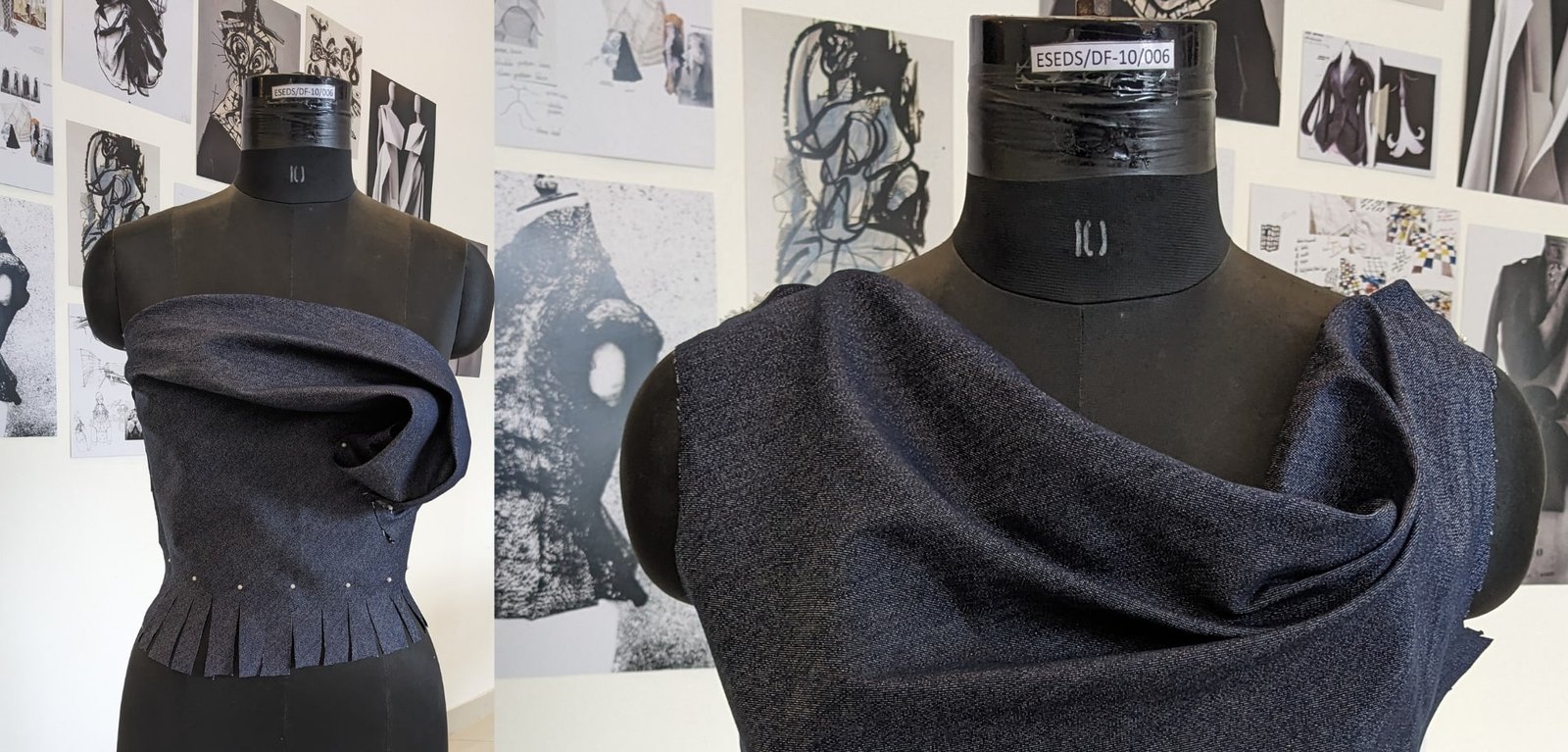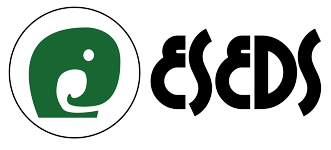BEST DRAPING COURSE IN KOLKATA
DRAPING
FOR WOMEN’S WEAR

Draping is an integral part of fashion design. Learn the technicalities from mentors with international experience in the field of draping. Join the best draping course in Kolkata and master the technique of draping.
- Level: Short Term Certification Course
- Duration: 6 Months
- Eligibility: Minimum Secondary or Equivalent examination (CBSE, ICSE, WBSE or any other equivalent board exams) with English as a compulsory subject preferred.
Draping is an intuitive, playful and enjoyable way to incorporate an idea into a garment. This course will introduce the concept of volume and folds and will help in visualizing an idea and explore on dress forms by twisting, folding, gathering and layering fabric.
It encourages students to develop:
- an ability to record from direct observation and personal experience;
- an ability to identify and solve problems in visual and/or other forms;
- creativity, visual awareness, critical and cultural understanding;
- an imaginative, creative and personal response;
- confidence, enthusiasm and a sense of achievement in the practice of Art and Design;
- growing independence in the refinement and development of ideas and personal outcomes;
- engagement and experimentation with a range of media, materials and techniques, including new media where appropriate;
- experience of working in relevant frameworks and exploration of manipulative skills necessary to form, compose and communicate in two and/or three dimensions;
- knowledge of a working vocabulary relevant to the subject and an interest in, and a critical awareness of, other practitioners, environments and cultures;
- investigative, analytical, experimental, interpretative, practical, technical and expressive skills.
| 3 Months |
|---|
| Introduction to draping and dress forms |
| Preparation of fabrics |
| Terminologies, tools, techniques and measurements |
| Principles of grain |
| Technical process to see drape fit through pinning on muslin |
| Basic bodice and exploring variations |
| Marking and truing |
| Dart manipulation |
| Basic skirt and exploring variations |
| Design Project |
| 3+3 Months |
|---|
| Cowls and exploring variations |
| Introducing fullness |
| Yokes and midriffs |
| Zero waste Draping techniques |
| Exploring new designs and advanced techniques |
| Design Project |
The assessment strategy for our design courses uses a perfect balance between summative and formative assessments in order to improve skills not only on core disciplines but also in project planning and time management. Projects are concurrently conducted between all modules in order to improve students’ transferrable skills, allowing them to link skills and competencies from various domains.
An Integral part of the course is the links to profession practitioners and industries, and in particular to this unique course is the connections you will make with ethical and sustainable sectors of the design and textile industry. You will learn how traditional sustainable practices such as ‘ikkat’ textiles, hand loomed weaving, shibori, along with contemporary ethical and sustainable practices such as; ‘peace silk’ and herbal dying can be incorporated into modern contemporary design practices.
Also how organisations such as ‘blue sign’ technologies and ‘Beyond Surface Technologies’ (BST)are working with massive fashion, sports, footwear and apparel companies to create more sustainable products for the mass consumer market.
Students will learn how these important traditional skills and techniques fused with new technologies can provide a design pathway to a sustainable and ethical future.
To have the knowledge of the basic principles and techniques of draping in fabric to develop contemporary designs by exploring the three-dimensional draping approach to executing garment design on the dress form, to develop a sense of proportion, silhouette, line, and style.



